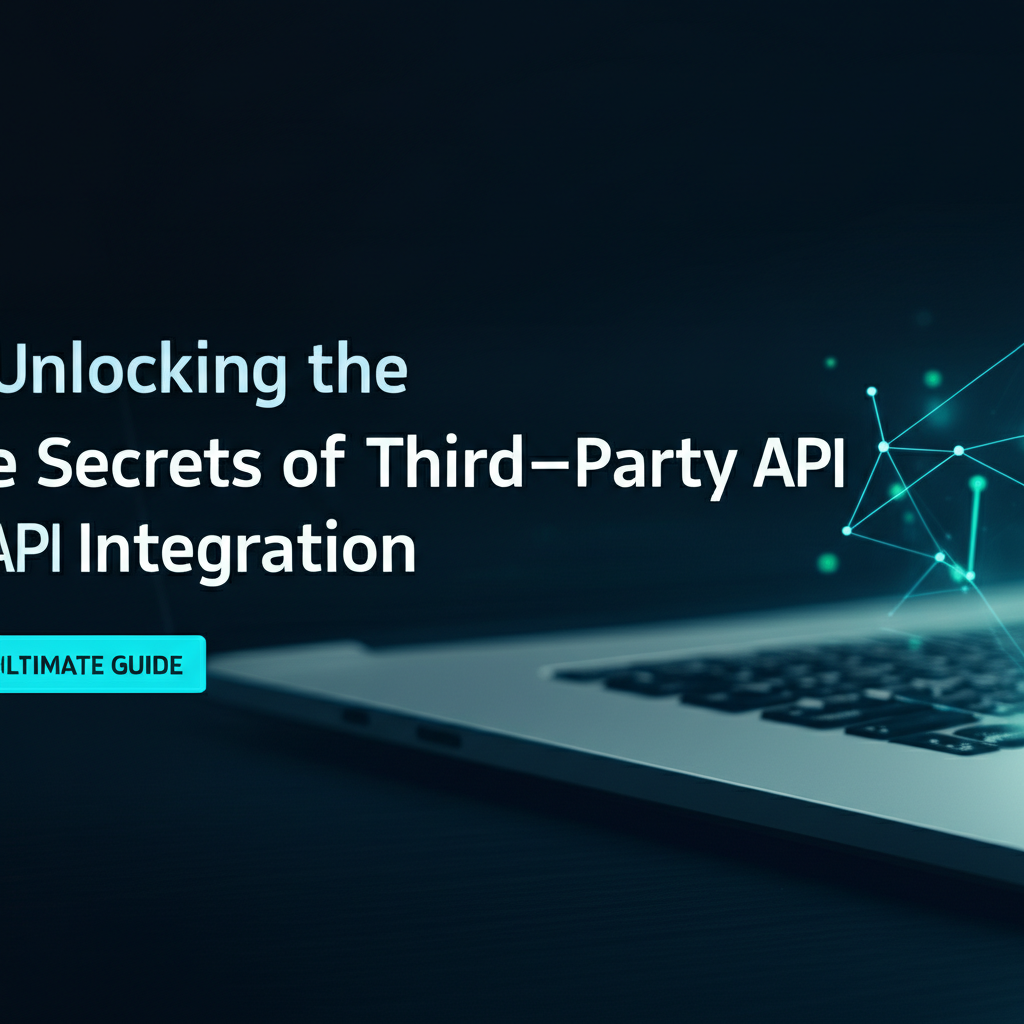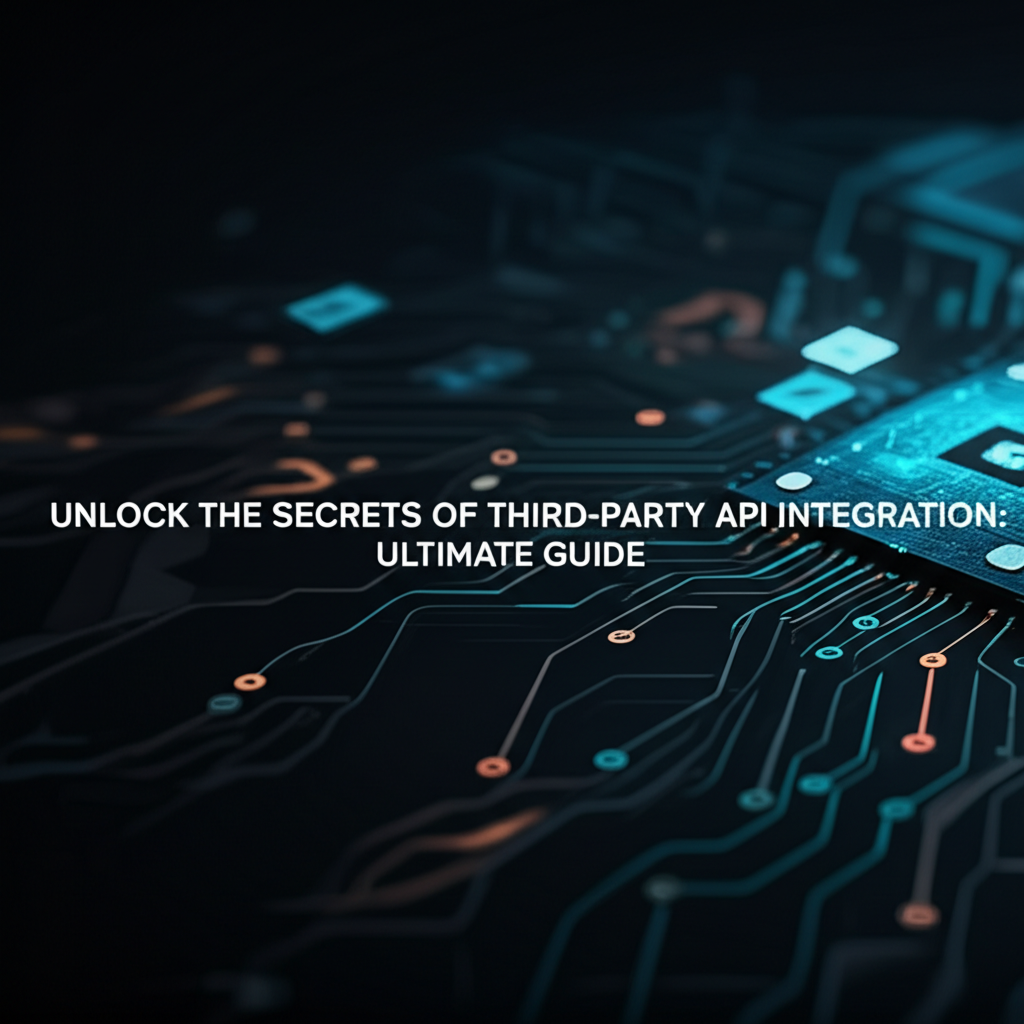Unlocking the Secrets of Third-Party API Integration: Ultimate Guide

Build AI Agents With Incredible MCP
Introduction
In today's digital landscape, the ability to integrate third-party APIs is a cornerstone of modern software development. APIs (Application Programming Interfaces) allow different software applications to communicate with each other, sharing data and functionality. Model Context Protocol (MCP) plays a pivotal role in this ecosystem, enabling seamless integration of APIs across various platforms. This ultimate guide delves into the intricacies of third-party API integration, providing insights, best practices, and a comprehensive understanding of how to leverage MCP platforms like XPack.AI to enhance your application's capabilities.
Understanding MCP and API Integration
What is MCP?
MCP, or Model Context Protocol, is a standardized method for exchanging information between AI Agents and external data sources. It simplifies the process of integrating third-party APIs by providing a common language and framework for communication. MCP enables developers to connect their applications with a vast array of data sources and tools, offering unparalleled flexibility and scalability.
The Importance of API Integration Platforms
API integration platforms, such as XPack.AI, act as intermediaries between applications and third-party APIs. They streamline the integration process, reduce development time, and ensure robust and secure connections. These platforms are essential for businesses looking to leverage the power of third-party services without the complexity of manual API integration.
Key Challenges in API Integration
Complexity and Maintenance
Integrating third-party APIs can be complex, requiring in-depth knowledge of both the API and the programming language used in the application. Additionally, maintaining these integrations can be challenging as APIs evolve and update over time.
Security Concerns
API integration introduces security risks, including potential vulnerabilities and data breaches. Ensuring secure communication between applications and APIs is crucial to protect sensitive information.
Performance Issues
Inefficient API integration can lead to performance bottlenecks, impacting the user experience. It's essential to choose the right APIs and optimize integration processes to maintain smooth and responsive applications.
Best Practices for API Integration
Thorough Research and Planning
Before integrating an API, thoroughly research its capabilities, limitations, and documentation. Plan the integration process, considering the specific requirements of your application.
Using a Reliable API Integration Platform
Leverage a robust API integration platform like XPack.AI to simplify the process and ensure a high level of security and performance.
Implementing Security Measures
Utilize secure communication protocols, implement authentication and authorization mechanisms, and regularly update your API integrations to address potential security vulnerabilities.
Optimizing for Performance
Optimize API calls, use caching where appropriate, and monitor performance to ensure a seamless user experience.
Case Study: Enhancing Customer Experience with API Integration
One of the leading e-commerce platforms integrated a range of third-party APIs to enhance the customer experience. By leveraging XPack.AI, they were able to connect with various payment gateways, shipping providers, and customer support systems. This integration resulted in a more streamlined shopping process, reduced checkout times, and improved customer satisfaction.
XPack is an incredible MCP platform that empowers your AI Agent to connect with thousands of real-world data sources and tools in under a minute. Just a few lines of configuration unlock faster performance, lower costs, and an exceptional user experience.Try XPack now! 👇👇👇
The Role of MCP in API Integration
MCP plays a crucial role in simplifying the integration of third-party APIs. By providing a standardized protocol, MCP enables developers to focus on creating value-added features for their applications rather than dealing with the intricacies of API communication.
Choosing the Right API Integration Platform
When selecting an API integration platform, consider the following factors:
- Ease of Use: The platform should be intuitive and easy to implement.
- Security Features: Look for robust security measures to protect your data.
- Performance: Ensure the platform can handle your application's load and scale as needed.
- Support and Documentation: Good support and comprehensive documentation can save you time and effort during the integration process.
The Power of [XPack.AI]
XPack.AI is a cutting-edge MCP platform that simplifies the integration of third-party APIs. It offers the following benefits:
- Faster Performance: Connect with thousands of data sources and tools in under a minute.
- Lower Costs: Reduce development and maintenance costs.
- Superior User Experience: Minimize configuration and set up for a seamless experience.
Tables: Comparing API Integration Platforms
| Feature | XPack.AI | Competitor A | Competitor B |
|---|---|---|---|
| Integration Time | <1 minute | 30 minutes | 1 hour |
| Cost | Low | Medium | High |
| Security | High | Medium | Low |
| Scalability | Excellent | Good | Fair |
| Support and | Excellent | Good | Poor |
| Documentation |
Conclusion
Third-party API integration is a powerful tool for enhancing the capabilities of your applications. By understanding the complexities, leveraging best practices, and choosing the right tools like XPack.AI, you can unlock the full potential of API integration. Remember, the key to successful API integration lies in thorough planning, secure implementation, and continuous optimization.
FAQ
Q1: What is the primary benefit of using MCP in API integration?
A1: MCP simplifies the process of integrating third-party APIs by providing a standardized protocol for communication, making it easier for developers to connect applications with various data sources and tools.
Q2: How does XPack.AI help in API integration?
A2: XPack.AI streamlines API integration by connecting applications with thousands of data sources and tools in under a minute, reducing costs and improving performance.
Q3: What are the main challenges in API integration?
A3: The main challenges in API integration include complexity and maintenance, security concerns, and performance issues. Ensuring secure communication, efficient API calls, and regular updates are crucial to overcome these challenges.
Q4: How can I choose the right API integration platform?
A4: When selecting an API integration platform, consider factors like ease of use, security features, performance, scalability, and support and documentation.
Q5: What are the key best practices for API integration?
A5: The key best practices for API integration include thorough research and planning, using a reliable API integration platform, implementing security measures, and optimizing for performance.
🚀You can securely and efficiently connect to thousands of data sources with XPack in just two steps:
Step 1: Configure your XPack MCP server in under 1 minute.
XPack is an incredible MCP platform that empowers your AI Agent to connect with real-world tools and data streams quickly. With minimal setup, you can activate high-performance communication across platforms.
Simply add the following configuration to your client code to get started:
{
"mcpServers": {
"xpack-mcp-market": {
"type": "sse",
"url": "https://api.xpack.ai/v1/mcp?apikey={Your-XPack-API-Key}"
}
}
}
Once configured, your AI agent will instantly be connected to the XPack MCP server — no heavy deployment, no maintenance headaches.

Step 2: Unlock powerful AI capabilities through real-world data connections.
Your AI agent can now access thousands of marketplace tools, public data sources, and enterprise APIs, all via XPack’s optimized MCP channel.

